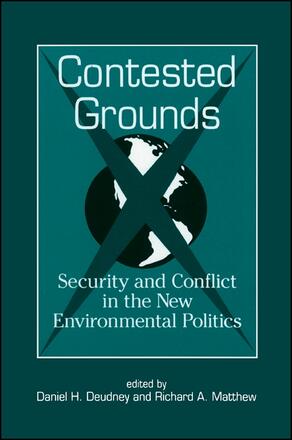
Contested Grounds
Security and Conflict in the New Environmental Politics
Alternative formats available from:
Presents diverse views on the relationship between environmental politics and international security.
Description
Since the end of the Cold War, the relationship between international security and the environment has been subject to intensive policy concern, scholarly debate and research. Contested Grounds brings together many of the best known researchers on this emerging topic as they present sharply conflicting views on the relationship between the environment and security and conflict.
The book puts the contemporary debate in historical and theoretical perspective by demonstrating the important, but overlooked, role that environmental factors have placed in historical developments and in earlier geopolitical theories. The contributors present diverse and often conflicting answers to three questions: What are the relationships between environmental change, degradation and protection and traditional natural security concepts and organizations? How useful are security concepts and organizations in mobilizing political responses to environmental problems? What role do environmental factors play in stimulating international conflict and cooperation?
In-depth case studies on transboundary resource issues are explored as well as the implications of Chinese environmental decay for political conflict, and the use of military satellites for environmental monitoring.
[Contributors include Ken Butts, Simon Dalby, Daniel Deudney, Ronald J. Deibert, Michel Frederick, Jack Goldstone, Thomas Homer-Dixon, Miriam Lowi, Richard Matthew, and Eric Stern. ]
Daniel H. Deudney is Assistant Professor of Political Science at Johns Hopkins University and coauthor of Renewable Energy and author of Bounding Power: Geopolitical Change, State-systems and Republican Restraint. He is also the winner of the American Political Science Association's 1995 Mary Parker Follett Prize for the best article in History and Politics. Richard A. Matthew is Assistant Professor in the School of Social Ecology and the Department of Political Science, and Director of the Global Environmental Change and Human Security Research Program at the University of California at Irvine.